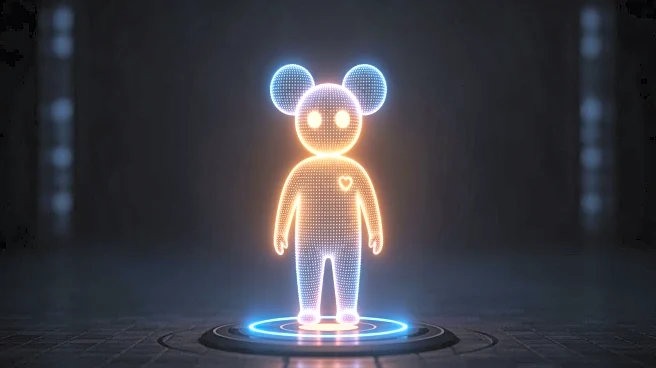What's Happening?
Alan Hamel, the widower of actress Suzanne Somers, is working on creating an AI version of his late wife. This project, known as the 'Suzanne AI Twin,' aims to replicate Somers' appearance and personality
by utilizing data from her 27 books and numerous interviews. Hamel, who was married to Somers for 46 years until her death in October 2023, presented a demo of the AI at a conference, expressing that the AI's resemblance to Somers is strikingly accurate. The initiative was inspired by Somers herself, who had discussed the idea with Hamel years before her passing. The AI is intended to serve as a resource for fans, providing health information based on Somers' past interviews with medical professionals.
Why It's Important?
The development of an AI version of Suzanne Somers highlights the growing intersection of technology and personal legacy. This project not only preserves Somers' memory but also offers a new way for fans to engage with her work and persona. It raises questions about the ethical implications of using AI to recreate deceased individuals, particularly in terms of consent and the authenticity of interactions. For the entertainment industry, this could signal a shift in how celebrities' legacies are managed and monetized posthumously. Fans of Somers may find comfort in this digital interaction, while others might question the emotional and ethical boundaries of such technology.
What's Next?
Alan Hamel plans to make the AI version of Suzanne Somers accessible online, allowing fans to interact with it. This could lead to further developments in AI technology being used to recreate other public figures, potentially sparking debates about the moral and legal aspects of digital resurrection. Stakeholders in the tech and entertainment industries may need to address these concerns as the technology becomes more prevalent. Additionally, the project could inspire similar initiatives, prompting discussions on how AI can be used to preserve and extend the influence of cultural icons.
Beyond the Headlines
The creation of an AI version of Suzanne Somers touches on deeper issues related to digital immortality and the preservation of personal legacies. It challenges traditional notions of memory and mourning, offering a new form of interaction with the deceased. This development could lead to broader societal discussions about the role of AI in personal and cultural memory, as well as the potential for AI to alter how we perceive life and death. As technology continues to evolve, the boundaries between reality and digital representation may become increasingly blurred.









